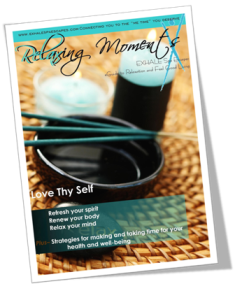Are you finding yourself caught in the whirlwind of work stress burnout, even as early as your mid-20s to 30s? It’s a challenge that transcends age, affecting many individuals, especially those in their early 40s. The signs may be subtle at first, like a sudden grief or a vague sense of change that takes years to fully manifest.
Have you noticed a decline in personal achievement and satisfaction at work? Does the thought of going to work feel like a time-consuming drudgery, turning the entire day into a bore? If frustration levels are soaring as life’s challenges seem overwhelming, you might be on the slippery slope toward work stress burnout.
But fear not, for you are not alone. Many individuals face these challenges, and it’s crucial to recognize the signs early on. Feeling out of control and blaming your spouse or boss is a common reaction, but the truth is, burnout is a personal crisis that requires your attention.
It’s essential not to expect those around you to fully understand what you’re going through because the crisis is happening to you, not them. While it may be tempting to place blame on your closest relationships, understanding that work stress burnout is a personal struggle is the first step.
If you find yourself in the grip of workplace burnout, seeking professional help is key to shifting your perceptions and finding a more realistic balance.
Let’s explore the emotional and physical symptoms associated with work stress burnout:
Emotional Symptoms
The emotional toll often appears as the initial sign of burnout. Unrelenting stress, a lack of enthusiasm, a sense of loss of control, and unexplainable grief may plague you. Blaming others for your feelings rarely resolves the inner turmoil.
In severe cases, thoughts of suicide may emerge, while milder cases lead to thoughts of total detachment as an escape. Seeking help is crucial for regaining the lost spark in your personality, preventing further decline in productivity and creativity, and overcoming negativity and cynicism.
Physical Symptoms
Work stress burnout takes a toll on your body. The constant feeling of “never being able to do enough” may drive you to work excessively long hours, resulting in physical exhaustion. This exhaustion manifests as headaches, physical shaking, mental fog, and an inability to relax.
Communication breakdowns may occur with your spouse, children, boss, or co-workers. Gastrointestinal problems may also arise as your body struggles to cope with prolonged work hours.
Solutions
There is a solution. Recognizing the signs of burnout is the first step. Seek professional help to shift your perspective and find a more realistic balance. Establish boundaries at work and prioritize self-care. Communicate openly with your loved ones about your struggles, fostering a supportive environment. Explore stress management techniques such as mindfulness, exercise, and proper sleep to rejuvenate both your mind and body.
Remember, work stress burnout is a journey, and with the right support and strategies, you can rediscover fulfillment and balance in your professional and personal life.


